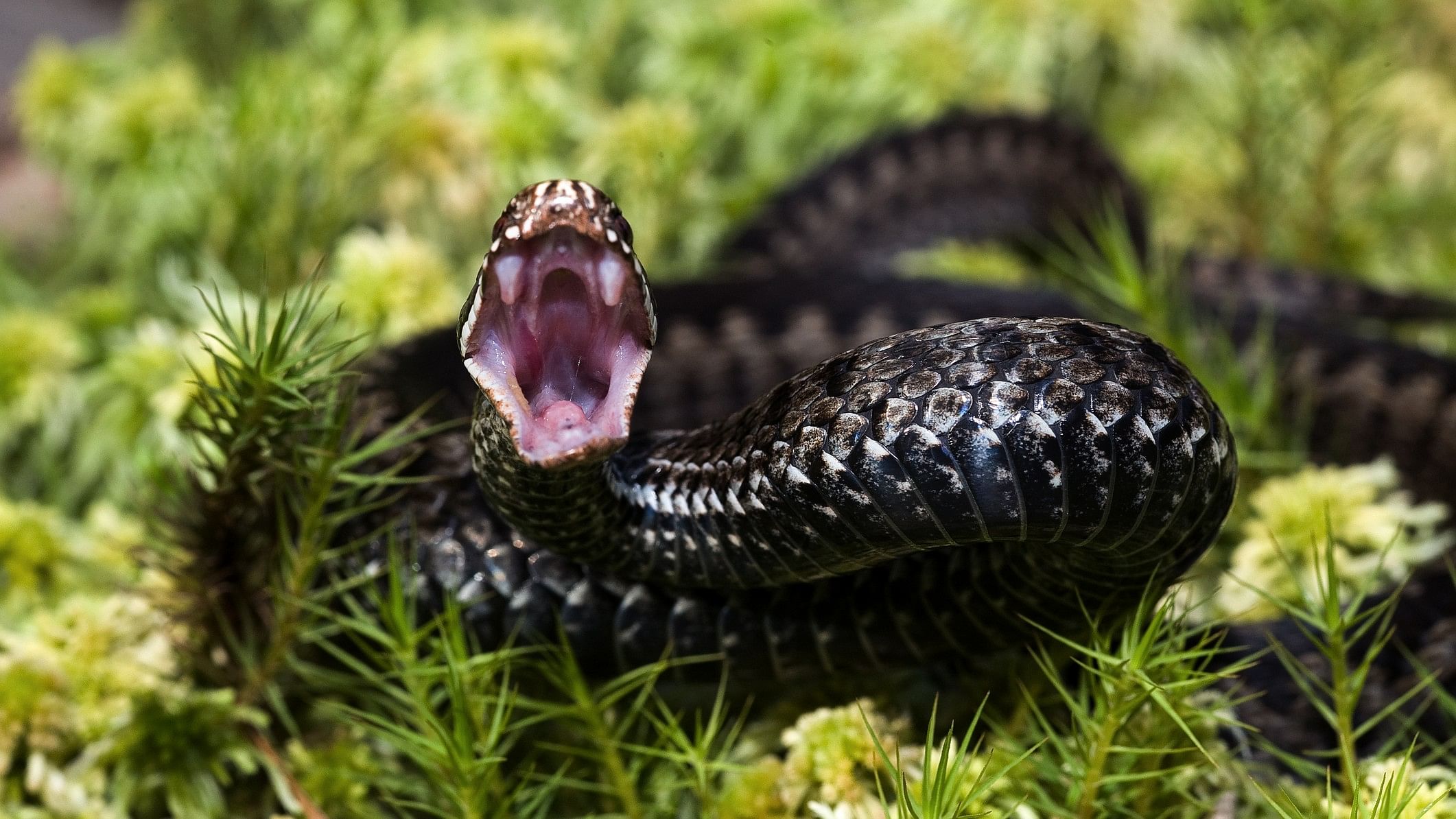
Since most bite victims require a minimum of 20 injections, besides additional treatment according to the extent of envenoming, costs usually run into several thousands of rupees.
Credit: iStock Photo
Bengaluru: Reported cases of snake bites and deaths in Karnataka have seen a drastic jump over the past couple of years.
Data from the Integrated Health Information Platform (IHIP) shows that reported snakebite cases nearly quadrupled from 950 cases in 2021 to 3,439 in 2022, and almost doubled to 6,587 last year. Deaths, too, jumped from zero in 2021 to 19 in 2023.
Though this spike could be attributed to health staff being encouraged to notify snake bite cases, these numbers, however, do not present a complete picture of the burden of snake bites. Cases are grossly under-reported in official data, thus skewing anti-snake venom (ASV) requirements in health establishments across the state.
The state government on February 19 acknowledged this gap in understanding and mandated the reporting of every snake bite case and death on the IHIP. This will push reported numbers higher by next year, enabling better tracking of actual incidence, especially during monsoon months which see a high incidence of snake bites.
Health Minister Dinesh Gundu Rao told DH that the health department will use this data to understand the exact incidence of snake bites in different districts, and accordingly allocate ASV stocks to primary health centres (PHCs), taluk and district hospitals. "Training health workers at the local levels to administer ASV will be our focus once we get this data," he said.
Anti-snake venom stocks
Currently, the Karnataka State Medical Supplies Corporation Ltd (KSMSCL) has a measly 14,000 ASV vials across its 27 active warehouses, which is nowhere near enough to cover the entire state. Despite this, officials at KSMSCL assured that "stocks are enough", adding that the onus was on local health clinics and hospitals to replenish their stocks.
"Tenders are being called to procure 57,000 vials of ASV, which will cover nearly 3,000 hospitals and PHCs connected with us across the state. How much is sent to each hospital is based on the requirements they upload on the e-AUSHADHI application," said Chidananda S Vatare, MD of KSMSCL.
It is unclear when the tendering process will be completed and vials -- which cost between Rs 500 and Rs 900 -- will be procured.
However, the availability of quality ASV stocks and trained healthcare personnel at the PHC level -- especially in rural areas -- are not the only things that need to be fixed, noted experts.
Since most bite victims require a minimum of 20 injections, besides additional treatment according to the extent of envenoming, costs usually run into several thousands of rupees.
Dr Nagaraj, medical director at a hospital in Hoskote, who has been treating snake bite victims for over two decades now, has been pushing for mass education about snake bites, besides making ASV accessible and affordable at all levels.
"The government must encourage more pharmaceutical companies to take up research and development of ASV because stocks are not adequate and the cost of each vial is also high. Similarly, it must also take the help of snake rescuers to reduce cases and provide them incentives," he said.
Vattam Adithya, a Ballari-based snake rescuer, is pushing for the government to strengthen health infrastructure in local clinics and hospitals across the state so victims are not forced to travel long distances for treatment. "Victims need to be admitted within an hour; any delays will reduce chances of complete recovery."
Wildlife activist and former wildlife warden Sharath Babu is also hopeful that the government will revise the compensation provided to victims from Rs 1 lakh to Rs 10 lakh.